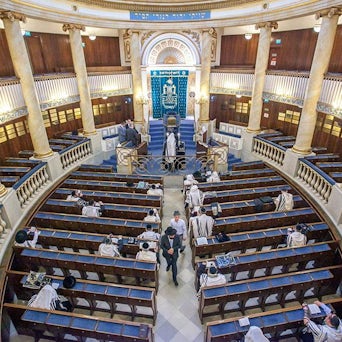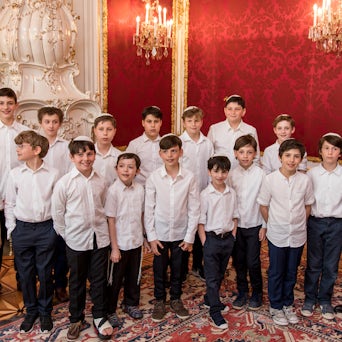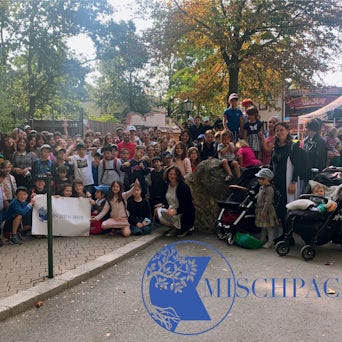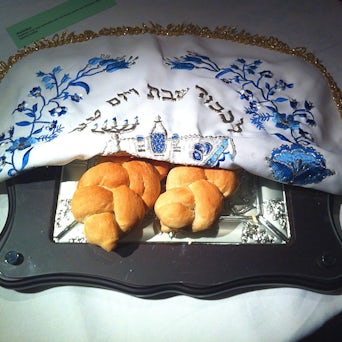
Rabbinate
The Rabbinate will support you at all stages of your life and will gladly advise you on matters of Halakha or ritual and crises in your personal life. The Rabbinate also supports soldiers, prisoners, the sick and the grieving. A further responsibility of the Rabbinate is to monitor the teaching of the Jewish religion.
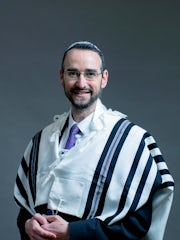
Jaron Engelmayer is the chief rabbi of the Jewish Community in Vienna
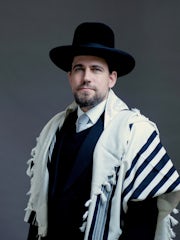
Schlomo Hofmeister is the community rabbi of the Jewish community in Vienna
The rabbis also offer classes or shiurim and maintain contacts with rabbis in other countries as well as inter-faith relationships.
Contact the Rabbinate
For appointments or questions, you can contact the Rabbinate secretariat at:
Kosher food in Vienna
The Rabbinate does not offer any specific recommendations about the businesses listed here, but their adherence to kashrut in their choice of ingredients and method of preparation, and their compliance with Halakha in their business practices, are exclusively monitored by, and therefore the responsibility of, the Rabbinate for the Hashgacha in question. However, all the businesses listed here do comply – according to their own information – with the same high standards regarding פת ישראל חלב ישראל and בדיקת תולעם, and the required reliability and expertise of their משגחים.
Vienna has an outstanding infrastructure of kosher restaurants and shops. The following map provides an overview.
Synagogues
In Vienna there are numerous different active Synagogues, with different traditions and prayer times. You can find an overview here.
The eruv in Vienna
The Torah forbids practising Jews from moving or carrying anything outside their homes on the Sabbath. However, there are some exceptions to these strict Sabbath rules. The private domain can be extended to a courtyard and even to other houses. The area must be separated off from the surrounding area by a wall or fence and must be available for communal use. The shared use takes the form of an "eruv".
In 2012 the eruv that existed in Vienna before the Nazi era was reinstated. The new eruv in Vienna extends from the central district to the Danube. The boundary of the new eruv in Vienna is 25 kilometres long. The planning process for this undertaking took nine years. People wanted to include existing walls, fences, wires and natural boundaries such as the Danube. Existing wires such as overhead tram cables and similar were used to enclose the entire eruv, with no gaps permitted.
There are currently 150 eruvim around the world, not counting in Israel. In Israel alone the number of eruvim is even higher. The Jewish religious community checks regularly to make sure the eruv is still intact. It can only be regarded as kosher if there are no gaps in it. You can see the exact boundaries of the new eruv in Vienna, and its status, at the following link: www.eruv.at
PROJECTS
D'var Torah - thoughts for the Sabbath
Weekly thoughts on Shabbat by Chief Rabbi Jaron Engelmayer.
Learn moreYiddish Children’s Choir
Jewish children's choir, which not only sings together, but also learns prayers.
Learn moreMischpachot
Jewish families plan joint activities such as outings, classes or holiday experiences as part of Mischpachot.
Learn moreShabbestisch
Initiative of the IKG Vienna to spend and celebrate together one Friday evening a month.
Learn more